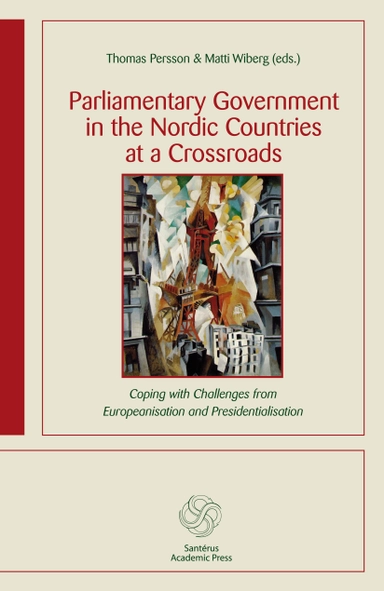

Parliamentary government in the Nordic countries at a crossroads : coping with challenges from Europeanisation and presidentialisationUpplaga 1
- Upplaga: 1a upplagan
- Utgiven: 2011
- ISBN: 9789173350266
- Sidor: 327 st
- Förlag: Santérus Förlag
- Format: Häftad
- Språk: Engelska
Om boken
Åtkomstkoder och digitalt tilläggsmaterial garanteras inte med begagnade böcker
Mer om Parliamentary government in the Nordic countries at a crossroads : coping with challenges from Europeanisation and presidentialisation (2011)
I september 2011 släpptes boken Parliamentary government in the Nordic countries at a crossroads : coping with challenges from Europeanisation and presidentialisation skriven av Hanna Bäck, Flemming Juul Christiansen, Hans Hegeland, Guy-Erik Isaksson, Magnus Isberg, Thomas Larue, Peder Nielsen, Rasmus Brun Pedersen, Bjørn Erik Rasch, Tapio Raunio, Hans Petter Saxi, Asbjørn Skjæveland, Kåre Vernby, Lina Westin. Det är den 1a upplagan av kursboken. Den är skriven på engelska och består av 327 sidor djupgående information om samhälle och politik. Förlaget bakom boken är Santérus Förlag.
Köp boken Parliamentary government in the Nordic countries at a crossroads : coping with challenges from Europeanisation and presidentialisation på Studentapan och spara uppåt 44% jämfört med lägsta nypris hos bokhandeln.
Tillhör kategorierna
Referera till Parliamentary government in the Nordic countries at a crossroads : coping with challenges from Europeanisation and presidentialisation (Upplaga 1)
Harvard
Oxford
APA
Vancouver



















